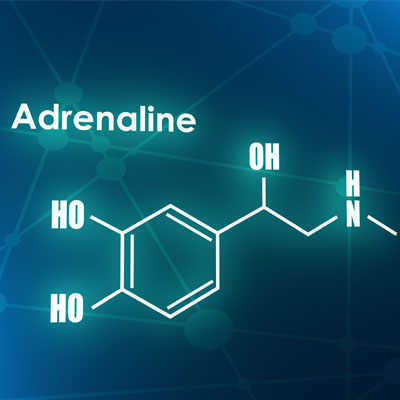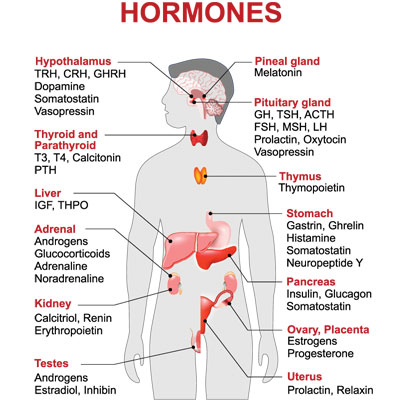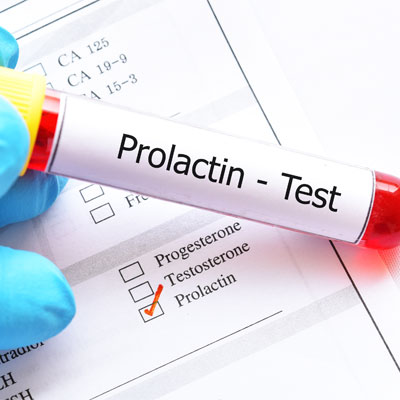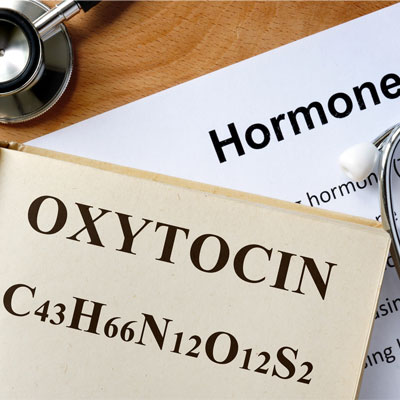Contents
- What Is Prolactin Hormone
- What is prolactin?
- What does prolactin do for women?
- How does prolactin affect males?
- How Is Prolactin Hormone Produced?
- What Happens If Prolactin Hormone Levels Are Too Low?
- What Happens If Prolactin Hormone Levels Are Too High?
- How Do I Test My Prolactin Hormone Levels?
- How Can I Improve My Prolactin Hormone Levels?
If you think that the only function of prolactin hormone is to induce lactation, you may be surprised by the information provided in this report. Although it is often referred to as the “Trusted sourceMedscapeHuman Milk and LactationGo to sourcemilk hormone ,” prolactin (also called luteotropic hormone, luteotropin, LTH, PRL) also influences reproduction, immunity, and behavior.
The prolactin definition is as follows: a pituitary hormone that stimulates milk production and other functions, including immune system maintenance.
Prolactin hormone is crucial for the proper health of both females and males. In this report, we will cover the following topics:
- What is prolactin hormone as well as the function of prolactin in men and women
- How the body regulates prolactin production
- What happens when prolactin levels are low
- How high prolactin levels affect the body
- The best way to test prolactin levels
- How to balance prolactin hormone levels
Prolactin hormone has functions in the male and female bodies beyond stimulating lactation in new mothers.
What Is Prolactin Hormone
As with many other hormones, prolactin is one that influences other hormones in their functions, specifically sex hormones such as estrogen and testosterone.
What is prolactin?
Prolactin is a protein, peptide hormone that exhibits mild gonadotropin tendencies. It is most known for its role in preparing the mammary glands for milk production (lactation). However, that is only one part of the importance of prolactin for the human body.
The list of prolactin hormone functions below includes those that affect both males and females:
- Increases proliferation of oligodendrocyte precursor cells that become oligodendrocytes that are essential for the formation of axon myelin coatings in the central nervous system (CNS).
- Enhances progesterone secretion which, in turn, supports testosterone and estrogen production as progesterone is a precursor hormone.
- Mediates the immunoneuroendocrine network to allow the immune, nervous, and endocrine systems to communicate with each other. Prolactin helps regulate cellular and humoral immune responses and stimulates lymphocyte proliferation.
- Helps regulate water and solute transport through the body.
What does prolactin do for women?
Besides preparing for lactation, prolactin also helps maintain the corpora lutea that secretes progesterone crucial for a healthy pregnancy. It has also been said that prolactin provides the maternal instincts for women.
How does prolactin affect males?
Prolactin plays a role in enhancing the luteinizing hormone receptors in the Leydig cells in the testes. By doing so, it makes the cells more susceptible to LH signals resulting in an increase in testosterone production. That testosterone is essential for supporting spermatogenesis resulting in sperm maturation.
Prolactin plays roles in immune support, hormone secretion, lactation, testosterone production, and more.
How Is Prolactin Hormone Produced?
The answer to how and where is prolactin produced is a complex one. Primarily, prolactin hormone production occurs in the Trusted sourceWikipediaPituitary Gland: Structure, Function, HistoryGo to sourcepituitary gland . However, the body also manufactures prolactin in adipose tissue, the brain, breasts, immune system cells, prostate, skin, and uterus. Prolactin release in those areas tends to work locally on specific functions.
The negative feedback loop of prolactin production occurs because dopamine restrains its release, and then prolactin enhances dopamine secretion. There is no primary prolactin releasing hormone, although thyrotropin-releasing hormone (TRH) and estrogen do help stimulate its production. Estrogen stimulates prolactin release especially at times when estrogen levels are at their highest peak during the menstrual cycle.
Prolactin levels are typically low in non-lactating women who are not pregnant as well as in males. Production peaks during REM sleep with levels at their highest early in the morning.
In females, the primary stimulator of prolactin secretion is suckling, which is neuronally mediated. When suckling occurs, it activates mechanoreceptors around the nipple that the nerve fibers carry to the hypothalamus. That stimulates changes in neuronal electrical activity that increase prolactin secretion. At the same time, the suckling action triggers oxytocin release from the pituitary gland that initiates milk let-down. While prolactin stimulates milk production, it is oxytocin that allows the breasts to fill with milk for feeding.
Other chemicals that can influence prolactin secretion include anti-diuretic hormone, vasoactive intestinal peptide, peptide histidine isoleucine, and progesterone.
In addition to chemical stimulus, prolactin function can also increase following high-protein meals, exercise, physical or emotional stress, epileptic seizures, and minor surgical procedures.
Prolactin production occurs in many parts of the body, and in response to many triggers.
What Happens If Prolactin Hormone Levels Are Too Low?
Having low prolactin levels is a rare condition that can occur in people who have underactive pituitary glands. There are no significant medical issues connected to low levels of prolactin, although reduced immune responses to infectious organisms are possible. Prolactin deficiency typically occurs secondary to dysfunction in the anterior pituitary gland. Other conditions such as growth hormone deficiency are likely with an underactive pituitary gland.
Here are some specific ways that prolactin deficiency (hypoprolactinemia) might affect males and females:
Male
In a 2013 European study of nearly 3,000 men between ages 40 and 79, researchers found that low prolactin levels often equated to reduced sexual function and orgasm enjoyment. Depression was also more common in men with low prolactin levels. Other issues reported in this study were higher blood sugar and BMI, lower physical activity, and a general feeling of reduced health. It is unknown if the low levels of prolactin proceeded or succeeded changes in other sex hormones, such as testosterone that also regulate sexual behavior. For these reasons, it may be beneficial to learn how to increase prolactin in males.
Female
If a woman has a low prolactin hormone level, she may have problems with her milk supply after birth. Sheehan syndrome (postpartum pituitary gland necrosis) is a condition that occurs due to severe blood loss and hypovolemic shock that can deprive the body of oxygen either during or after childbirth that can lead to hypopituitarism. When that occurs, there is damage to the pituitary gland that inhibits hormone production. The inability to lactate is one of the first signs of this condition following childbirth. However, the symptoms of Sheehan’s syndrome may not appear until months or even years later.
Prolactin deficiency is rare and is often rooted in another problem.
What Happens If Prolactin Hormone Levels Are Too High?
It is more likely that a problem with prolactin function will be due to elevated levels rather than low ones. Some medications such as haloperidol and risperidone (psychiatric drugs), as well as metoclopramide (used to treat nausea or acid reflux caused by cancer drugs), can increase prolactin levels. Strenuous activity, stress, and low blood glucose levels can also raise prolactin levels. An underactive thyroid or dopamine-reducing medications may also lead to elevated prolactin production. Marijuana use can also lead to increased prolactin levels.
Another concern is a benign pituitary tumor called a prolactinoma that can lead to elevated prolactin levels. A prolactinoma may develop if a normal prolactin-producing cell in the pituitary gland develops some form of a mutation.
Issues concerning high prolactin levels include:
Male
Hyperprolactinemia is not a common concern for men. Elevated prolactin levels in males are often linked to sexual problems, erectile dysfunction, and testosterone deficiency. Infertility is another possibility for men with high levels of prolactin. Gynecomastia (enlarged breast tissue) and loss of body hair are potential signs of elevated prolactin hormone. Because there is an association between very high prolactin and very low testosterone levels in males, the doctor may recommend undergoing an MRI to check for pituitary structural abnormalities.
Female
When prolactin levels in women are elevated, menstrual cycle irregularities are possible. Some women may experience excessive or spontaneous milk secretion. Untreated hyperprolactinemia in women can disrupt estrogen and progesterone production, leading to infertility. As a result, the ovaries may cease the release of mature eggs.
Part of the problem with chronically high levels of prolactin hormone is that it interferes with testosterone and estrogen levels. In time, that can lead to the weakening of the bones and the onset of osteoporosis in males and females. If the tumor presses on nerves to the eyes, it can lead to peripheral vision impairment. Pressure from the tumor on the pituitary gland can impact hormone production crucial to the thyroid and adrenal glands.
High levels of prolactin can be linked to numerous issues, including a tumor called a prolactinoma.
How Do I Test My Prolactin Hormone Levels?
A prolactin test is the best option for assessing prolactin levels in the body. In women, the doctor may order a prolactin blood test if the following symptoms are present:
- Abnormal acne
- Abnormal body or facial hair growth
- Unexplained headaches
- Discomfort or pain during sex
- Lactation not associated with birth or nursing
- Visual impairment
- Irregular periods
- Infertility
A test to assess prolactin hormone levels in men may be warranted if the following symptoms are present:
- Erectile dysfunction
- Visual impairment
- Unexplained headaches
- Abnormal body or facial hair growth or loss
- Infertility
- Reduced sex drive
As with many hormone blood tests, the doctor will likely want it done first thing in the morning. Unexplained headaches and visual impairment can point to a possible prolactinoma. That concern may warrant an MRI of the brain.
Normal prolactin levels in adults are as follows:
- Males 2 to 18 ng/mL
- Pregnant women 10 to 210 ng/mL
- Non-pregnant women 2 to 30 ng/mL
Prolactin levels are measured by blood analysis. An MRI may be necessary if the doctor suspects a prolactinoma.
How Can I Improve My Prolactin Hormone Levels?
If the cause of elevated prolactin is a tumor, then removing or reducing the tumor size through surgery, medication, radiotherapy, or other options may help reverse the symptoms. The medication bromocriptine (Parlodel and Cycloset) helps increase dopamine production to reduce prolactin secretion. Bromocriptine also helps shrink prolactinomas and is taken twice daily. Side effects such as nasal stuffiness, nausea, and dizziness are possible. Taking the medication at mealtime or before bed may reduce side effects. Bromocriptine is helpful in restoring fertility in women.
Another medication is cabergoline that has fewer side effects than the other two medications. Unlike bromocriptine, cabergoline is taken only once or twice each week but is not effective for supporting female fertility. Prolactin levels tend to decline rapidly – within a few weeks. Many patients with visual tumor impairment report improvement within days of starting treatment.
Doctors often try medication as the first course of action, opting to wait to use radiation therapy or surgery if drug therapy does not work.
If you have high prolactin hormone levels, not due to a tumor, one of the best options is to use natural approaches to improve hormonal balance. To help achieve a prolactin normal range, you will want to learn how to reduce stress. Yoga, meditation, deep breathing, and other methods of relaxation can be of great benefit to you.
Other natural methods for lowering prolactin levels include:
- Lowering sugar consumption and engaging in healthy dietary choices can reduce blood glucose levels.
- Reducing high-intensity workouts that stress the body
- Taking vitamin E and B6 supplements – do so only under doctor supervision
- For women, avoiding clothes or activities that overstimulate the nipples or are bothersome to the chest
Because fennel, red clover, and fenugreek can increase prolactin levels, make certain that you do not consume foods or supplements with these substances. Of course, if you are trying to learn how to increase prolactin levels naturally, these would be possible options. Nipple stimulation for pregnant or nursing women is recommended.
Foods that can help increase prolactin include oats, sesame seeds, and quinoa. Hormone therapy, such as estrogen and progesterone may help trick the body into thinking it is pregnant. Always speak with a hormone specialist before taking any actions to alter hormone levels.
HGH Doctor hormone clinic is available by phone for free, confidential consultations to answer all your hormone questions. Affordable testing and treatment options are available for men and women throughout the US.
- Ferdinand Roelfsema, MD, PhD, Hanno Pijl, Daniel M Keenan, PhD, Danielle Johannes
- Klara Coello, PhD student, Brian Villumsen Broberg, MSc, PhD, Nikolaj Bak, PhD, Anna Madsen, MSc, Henrik B. Mortensen, MD, DMSc, Birgite Søgaard, MSc, Pal Bela Szecsi, MD, DMSci, Filip K. Knop, MD, PhD, Henrik Lublin, MD, DMSc
- Joanna Goldberg Medically reviewed by Alan Carter, Pharm.D.
- Mustafa Al-Chalabi; Autumn N. Bass; Ihsan Alsalman
- Peter J Snyder, MD, David S Cooper, MD, Kathryn A Martin, MD
- Nicole Galan, RN, Medically reviewed by Anita Sadaty, MD
Prolactin Secretion in Healthy Adults Is Determined by Gender, Age and Body Mass Index
Postprandial prolactin suppression appears absent in antipsychotic-treated male patients
Patient education: High prolactin levels and prolactinomas
Symptoms of High Prolactin Hormone Levels










